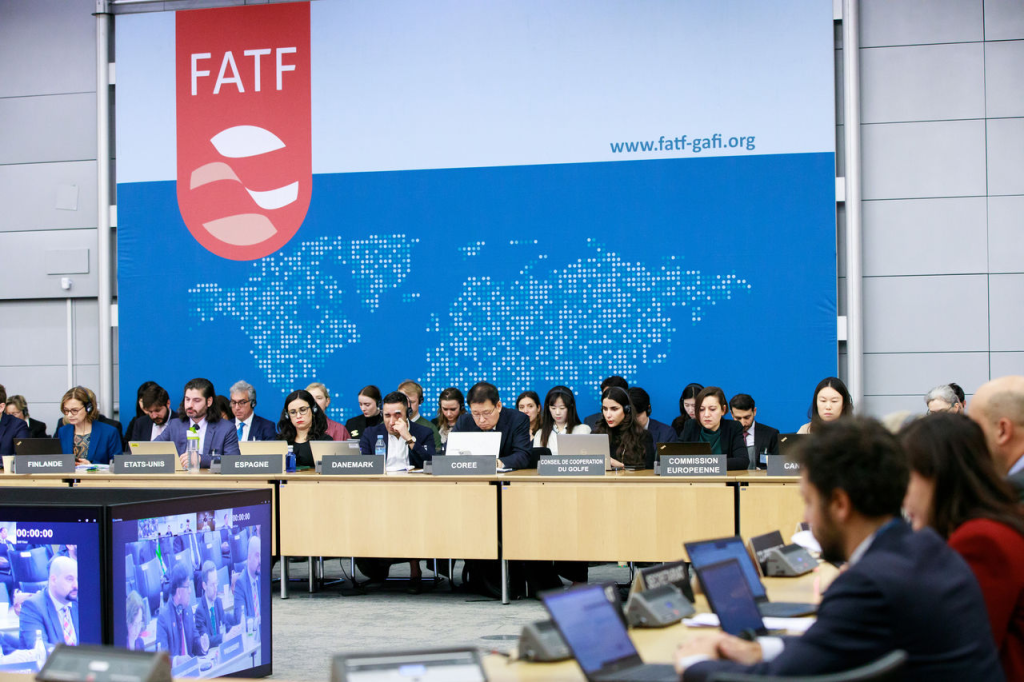- 7 minutes read
FATF Plenary Meeting October 2023: Strengthening Global Efforts Against Financial Crime
In the dynamic landscape of combating money laundering, terrorism financing, and proliferation financing, the Financial Action Task Force (FATF) continues to play a pivotal role. The fourth FATF Plenary Meeting is the decision-making body of the FATF. The FATF Plenary meeting happens three times a year, in February, June, and October. From October 25th to 27th, 2023, under the Singapore Presidency of T. Raja Kumar, marked a significant milestone in strengthening global efforts against financial crime.
During the Plenary Meeting, the FATF welcomed Indonesia as its 40th member, reaffirming the country’s commitment to adhering to FATF standards and combating financial crime. Additionally, the Plenary discussed the joint FATF-GAFILAT evaluation of Brazil, focusing on enhancing cooperation, prosecuting money laundering, and improving anti-money laundering and counter-terrorism financing (AML/CFT) regimes.

The FATF continues to monitor jurisdictions with significant strategic deficiencies in their AML/CFT regimes. The Plenary discussed the progress and areas of concern regarding high-risk and monitored jurisdictions. As a result, the plenary acknowledged the proactive approach of Bulgaria, which has made substantial progress in addressing identified strategic AML/CFT deficiencies within agreed timelines. Resulting in adding Bulgaria to the Grey list. Bulgaria pledged at the highest political level to collaborate with the FATF and MONEYVAL to improve the efficiency of its AML/CFT framework. Bulgaria has advanced on the activities to strengthen its international cooperation after its implementation in May 2022.
Bulgaria is set to implement its FATF action plan, which includes several key initiatives such as -
- Implementing National AML/CFT strategy by adopting a comprehensive action plan
- Addressing the remaining technical compliance deficiencies
- Demonstrating initial implementation of risk-based supervision for postal money operators, currency exchange providers, and real estate agents and establishing market entry controls for VASPs and postal money operators
- Ensuring the Register's beneficial ownership information is current and correct
- Completing implementation of the automated system to ensure automated prioritization of STRs
- Determining which NPO subset is most susceptible to TF exploitation and showcasing the early application of risk-based monitoring to stop abuse for TF objectives
- Albania, the Cayman Islands, Jordan, and Panama were removed from the grey list due to significant progress in rectifying strategic deficiencies identified during mutual evaluations. The successful on-site visits played a crucial role in these positive developments.
Key Initiatives And Strategic Focus
- The FATF Plenary Meeting in October 2023 aimed to enhance global efforts against financial crime by releasing a report on terrorist groups' misuse of crowdfunding platforms, revising Recommendation 8 to ensure balanced measures for Non-Profit Organizations (NPOs), and assessing countries' implementation of Recommendation 5, which focuses on criminalizing terrorism financing. The meeting also highlighted the importance of aligning national legislation with international standards and equipping law enforcement agencies to combat terrorism financing effectively.
As a core component of combating money laundering and financial crime, the FATF has enhanced tools for recovering the proceeds of crime, facilitating the confiscation of illicit funds, and supporting victims of financial crimes. The role of Asset Recovery Networks (ARINs) in improving international asset recovery efforts was also discussed, with a focus on enhancing collaboration between the FATF and ARINs to streamline the recovery of criminal assets across borders and ensure effective cooperation among relevant stakeholders.
The General Assembly addressed the issue of illicit financial flows, specifically cyber-enabled fraud and the misuse of Citizenship and Residency by Investment Programs. The FATF, in collaboration with INTERPOL, organized the FATF-INTERPOL Roundtable Engagements (FIRE), highlighting the need for stronger domestic legal frameworks to facilitate more effective asset recovery and combat money laundering.
The revised FATF recommendations now require countries to establish non-conviction-based confiscation regimes in their legal systems, enabling national authorities to secure criminal assets more swiftly. The revised FATF Standards empower countries to suspend transactions related to money laundering, terrorism financing, and serious crime, ensuring asset recovery becomes a core component of an effective crime prevention and mitigation strategy.
The October 2023 FATF Plenary Meeting was a major turning point in international efforts to stop the funding of terrorism, proliferation, and money laundering. The addition of Indonesia as the 40th member of the FATF, which emphasizes conformity to international standards, is one of the major features. To bring national legislation into line with international norms, the Plenary addressed important issues such as criminalizing terrorism financing, addressing crowdfunding as a means of financing terrorism, and updating suggestions for non-profit organizations.
Emphasis was placed on asset recovery, the function of asset recovery networks, and the issue of illegal money flows. The FATF emphasized the value of non-conviction-based confiscation, encouraged domestic and international coordination, and gave nations the power to halt transactions linked to illegal activity to fortify legal frameworks and foster international cooperation. The goal of the updated FATF standards is to change public perception such that asset recovery is now a fundamental part of successful tactics for mitigating and preventing crime.
Overall, the FATF’s commitment to strengthening the global fight against financial crime was evident in the outcomes of this Plenary Meeting. The efforts and initiatives discussed reflect the organization’s determination to adapt to evolving challenges and enhance cooperation among its member states and relevant stakeholders to protect the integrity of the global financial system






